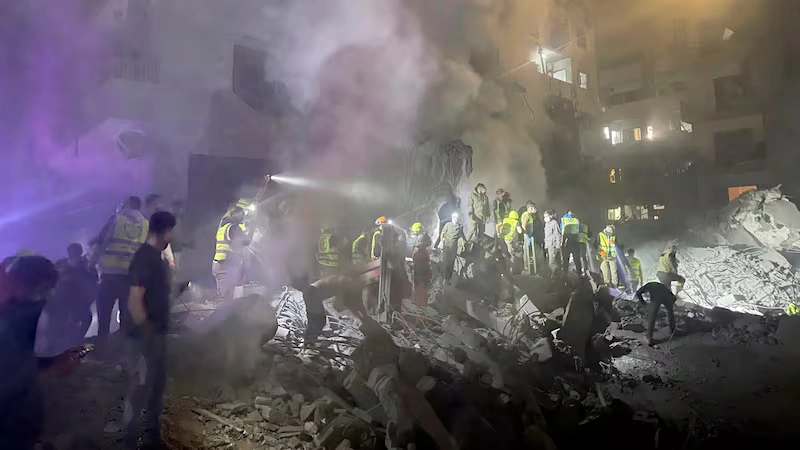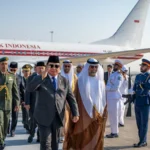In the early hours of Saturday, central Beirut was shaken by powerful explosions as Israeli air strikes targeted the crowded Basta neighborhood. Five strikes hit an eight-story building, killing at least 11 people and injuring 63, according to the Lebanese Health Ministry.
The attack, which occurred around 4 a.m., was the fourth Israeli strike on central Beirut this week. This escalation comes as U.S.-mediated negotiations to halt the conflict with Hezbollah reach a critical phase. Ground clashes have also intensified along the southern Lebanese border, which Israel invaded in late September.
Lebanon’s state-run agency reported that Israel used bunker-buster bombs in Saturday’s strikes. The attack destroyed one building and caused significant damage to nearby structures, leaving a large crater at the scene.
Videos and images shared online showed rescuers working amid thick smoke and ambulance sirens. In one clip, a man filming from his balcony described the devastation, saying, “There were five buildings there, full of people—they’re all gone.”
The smell of burning explosives lingered in Beirut long after the strikes. While the exact target remains unclear, neither Israel nor Hezbollah has commented on the incident.
This latest attack comes weeks after an Israeli air strike in Basta on October 10, which killed 22 people, targeting Hezbollah official Wafiq Safa. Reports suggest Safa survived the earlier strike.
Hours after Saturday’s attack, Israeli forces bombed two southern Beirut neighborhoods, Hadath and Chouaifet El Aamroussieh, issuing evacuation orders to residents beforehand.
Although southern Beirut has faced heavy bombing since late September, attacks on central Beirut have been relatively rare until recently. The Basta strike follows a deadly air strike in Ras Al Nabaa last Sunday, killing Hezbollah media chief Mohammad Afif and two others. On the same day, a shopping street in Mar Elias was hit, claiming three lives, while the Zuqaq Al Blat district near key government offices was bombed on Monday.
Tense Negotiations Amid Escalating Violence
U.S. special envoy Amos Hochstein arrived in Beirut earlier this week to mediate a ceasefire agreement. After extending his visit due to initial progress, he left for Israel on Thursday. However, his immediate return to the U.S. hinted at a deadlock in negotiations.
Hezbollah leader Naim Qassem addressed the situation in a televised speech on Wednesday, warning of a “war of attrition” if talks fail. He also threatened direct attacks on central Tel Aviv.
One major obstacle in the negotiations is Israel’s demand for the right to conduct strikes in Lebanon under “self-defense” even after a truce. “The Israeli side is trying to secure through negotiations what it couldn’t achieve in war. This is unacceptable,” Qassem stated.
As tensions rise, the people of Beirut remain caught in the crossfire, enduring increasing violence while awaiting potential breakthroughs in the ongoing peace efforts.





